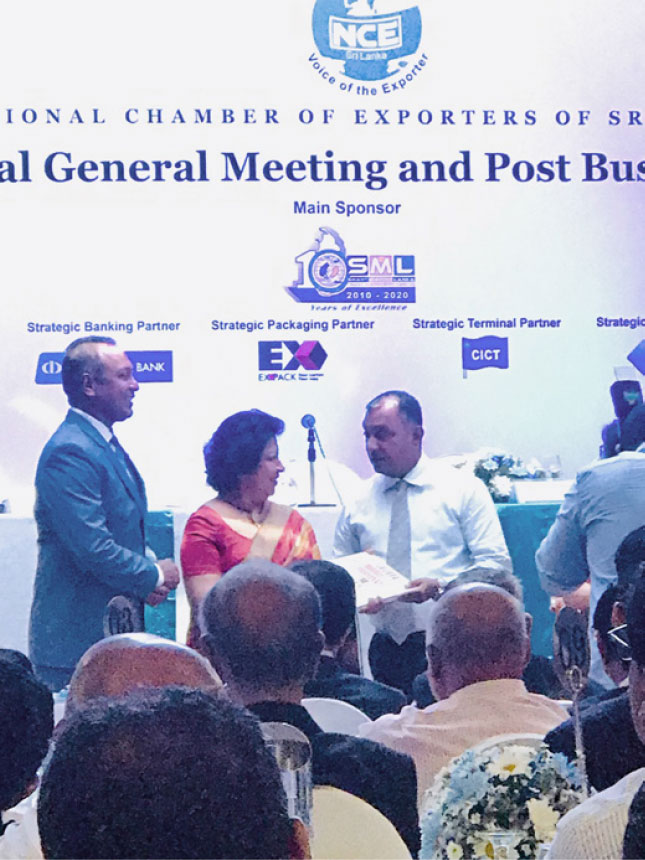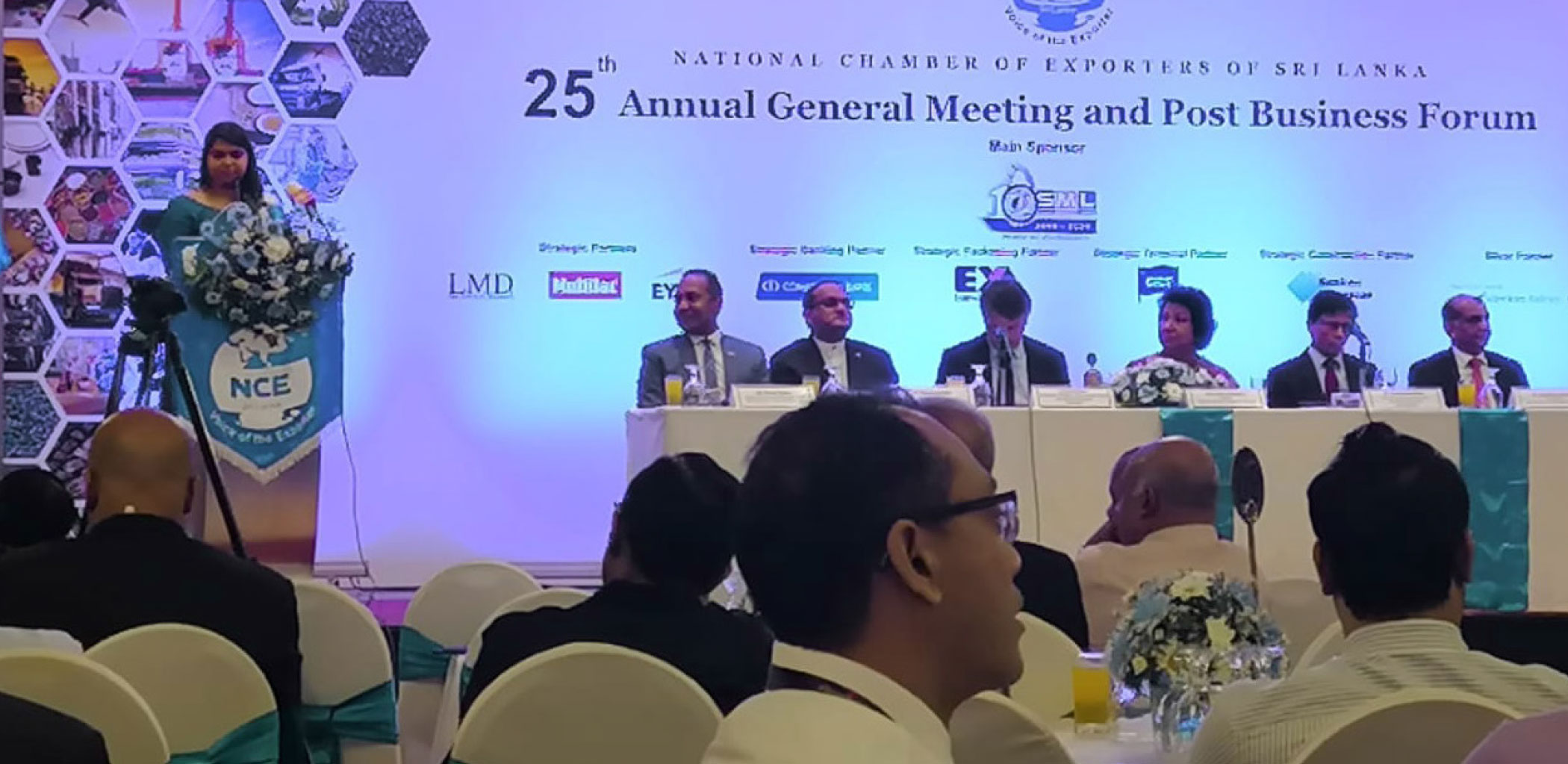The National Chamber of Exporters of Sri Lanka (NCE), the only private sector Chamber which exclusively serves Sri Lankan exporters, conducted its 25th Annual General Meeting (AGM) for 2020 on 28th January in the Grand Ballroom at the Hotel Galadari in Colombo. As a special invitee, we introduced CSS Colombo as a new NVOCC in Sri Lanka.

The NCE represents the interests of a broad spectrum of stakeholders in the export sector and performs as a platform to address various issues and make representations to the concerned government authorities. The NCE works together with the exporter community in Sri Lanka to facilitate and achieve the national economic developments in exports for the island nation of Sri Lanka.
The chamber functions as a voice of the exporter community, serving more than 500 Sri Lankan exporters. The members vary from export-oriented enterprises across all product sectors and most services sectors, as well as service providers to exporters. From the leading export houses to small and medium-sized enterprises, the chamber promotes the interests of the exporter community, and it is today known in the exporter circles as the ‘Voice of the Exporter’ in Sri Lanka.
Sri Lanka is the hotbed and the center of attention in the competition between China, India, and the United States to conquer the Indian Ocean. All three countries have their agendas and priorities for this region. Sri Lanka’s strategic location in the east-west corridor gains geopolitical eminence, thereby playing a vital role in the game of dominance between these three nations.
“Whoever controls the Indian Ocean will dominate Asia… the destiny of the world will be decided on its waters”, said Alfred Thayer Mahan, a United States naval officer who was known as the most famous American strategist of the nineteenth century.

The island republic of Sri Lanka stands at the cusp of being thrust into a position of global prominence. Maritime trade is at an all-time high, and Sri Lanka has all the advantages to serve as the trading nerve center facilitating maritime transactions as part of a broader Sea Lines of Communications Matrix.
Besides the Chinese Belt and Road Initiative and America’s established maritime presence in South Asia, Sri Lanka’s littoral position holds immense potential. India, USA, and China are actively seeking a Sri Lankan alliance to strengthen their position in the Indian Ocean. With the political unrest in the Middle East and new security commitments, countries have been seeking alternative sea lanes near Sri Lanka.
USA: With China exerting control over Chabahar in the Gulf of Oman, Gawadar in Pakistan, Colombo, and Hambantota in Sri Lanka, USA is wary of China’s growing dominance and control over global trade. The US is strengthening its maritime arrangement in Diego Garcia to incentivize Sri Lanka to a mutually agreeable position.
India: Both India and China have constructed maritime outposts to secure their economic interests. With the increasing Chinese dominance over the Indian Ocean, India’s position is being challenged. To safeguard its SLOCs to the Middle East, which is used to supply oil and energy, India has several development projects in Sri Lanka to counter the Chinese bid for power. The Trincomalee port can be seen as a counteraction against the China-funded Hambantota port.
China: China is fully aware of the strategic position that Sri Lanka enjoys, being a natural corridor between the East and the West. Security of sea lines of communication (SLOC) is also directly linked to Sri Lanka, which is very important for China to establish its roots in the Indian Ocean.
The busiest East-West shipping route is just ten nautical miles south of Lanka. This nautical corridor accounts for almost half of the world’s container traffic, one-third of bulk cargo movements, and 80% of the global petroleum supply. International maritime trade can be hugely affected even if there is a slight disturbance at the southern tip of Sri Lanka.
For the island republic of Sri Lanka, this position lends immense opportunity as well dilemma. Whether Sri Lanka will play it neutral or align with any of these countries will determine who will emerge the winner in this battle for dominance.

